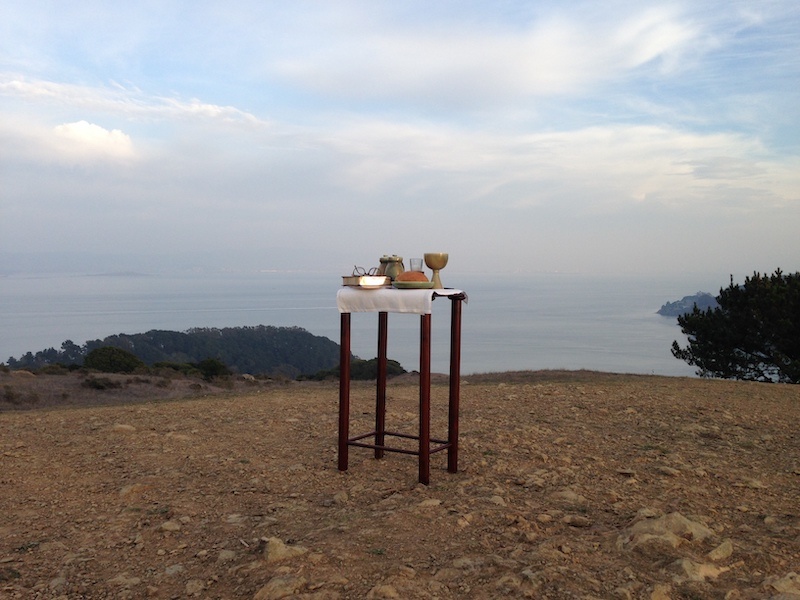The seventh-day commandment to rest is not just an encouragement to stop work. In fact, I have to wonder, is it an imperative about work, at all? Perhaps the commandment is more of an invitation, a call, not to the negative (stop work) but to the positive (engage rest). What might this world so consumed by anxiety look like if we were to simply … rest?
In seminary, our Old Testament (Hebrew Scriptures) professor, Becky Wright, gave us affirmative examples of keeping the seventh day holy. Play the piano, if that is what you enjoy. Make love to your spouse or significant other. Do something that makes you happy. Enjoy.
For years, now, I have taken the commandment as an invitation to move myself away from the six-day tasks of answering emails and writing sermons (or whatever) to more enjoyable tasks, like reading novels, taking naps, hiking or jogging, all activities I enjoy so very much. For years, I would cap my Friday sabbath with pizza and movie night with my kids. Enjoy.
You see, creation is good, in all its forms, particularly pizza and movies, and hiking and jogging. Still, those elements by themselves proved to be insufficient, standing alone. Sabbath became Shabbat by invitation of God to join-in, both my invitation and God’s. Mutual agreement. There, in that welcome, God would join me, something I sensed most often when alone and outdoors. Outside, in the woods or on a plateau or along a bike path through the countryside or land preserves. Among ancient oaks or facing the vast and jeweled Pacific.
Worship, meaning to turn attention to concentration and consecration, to turn aside not only from tasks, but from myself. Worship, which explains why silence in communion is so … simultaneously emptying and filling. It is the contradiction of life, when one quits presenting needs to God and the universe and instead presents oneself, blemished and half, imperfect and unsteady, to the kindly Creator of healing.
The altar of God is nature itself, and nature is filled with the glory of God. God in the wild enabling the soul to capture God without enslaving God, to possess God yet leave God nonetheless free, as wholly other. In us, yet not us. In me, yet not me.
Moses instructed the people that a stone altar of sacrifice ought not be crafted, ought not be hewn. Human hands must not form it, he warned. Or, as Abraham reminded his son, Isaac, [Let] God [ ] provide the sacrifice.
God’s name, “I am,” actually means this: I will be what I will be. No word, no name, no human effort can capture or contain God. Likewise, no altar created by human hands is sufficient. Let God create the altar: nature itself. An altar that invites you and me to worship in rest.
Enjoy.

